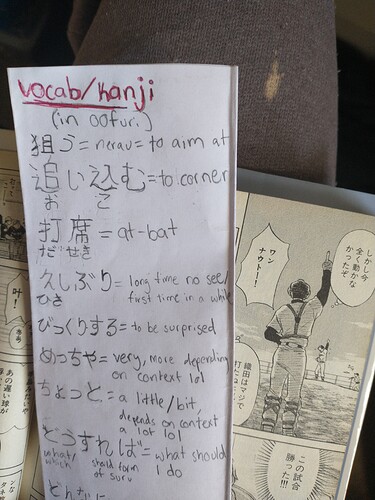For me, it’s Googling a new word to understand the usage and context through pictures and linked articles/videos. Of course, I have to set the regional results to Japan, if not I’ll get most of the results in Chinese.
You would think this would be more popular, and I’m sure it is among heavy Anki users. But in local study groups over the years, no one seemed to use this.


